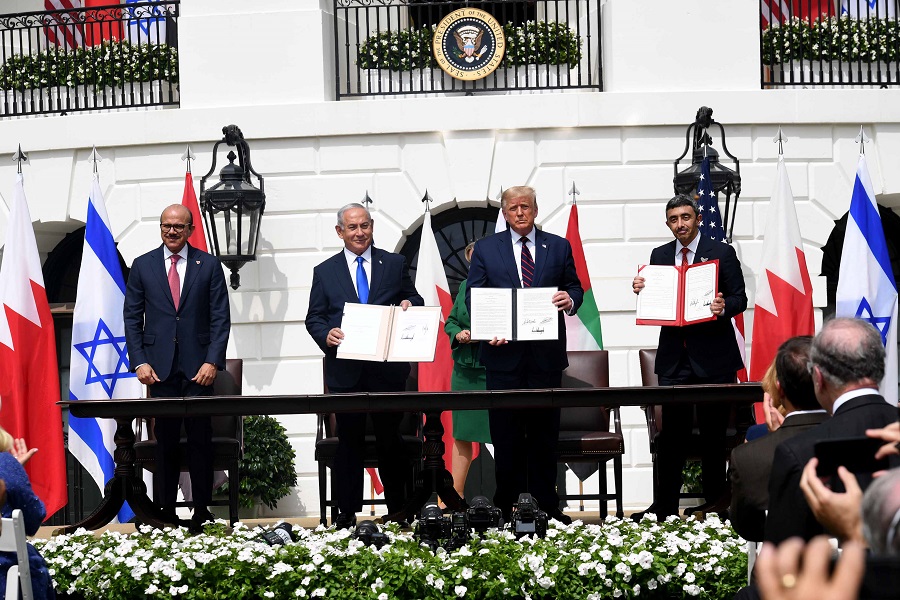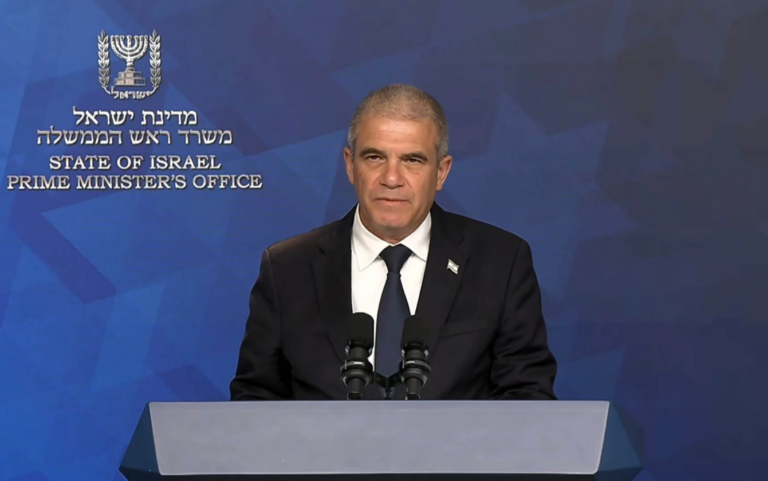Israel is no stranger to other nations threatening that if it pursues X policy, its ties with the world will be damaged. But the Jewish state often dismisses such threats — and rightly so. However, the UAE’s warning that extending sovereignty over Judea and Samaria “would be a red line” should be taken very seriously.
I explained why in my Shabbat column for Israel Hayom, an excerpt of which is below. You can read it on Israel Hayom’s website here.
***
One morning, not long ago, a policeman knocked on the door of the UAE embassy in Israel. I’m very sorry, he said, but you need to immediately take down the flag on top of the building. Why, asked the guard. Because Palestinian flags are not allowed. To the policeman, the red-black-white-green flag looked identical to the one Hamas personnel wave. Perhaps he thought all Arabs are the same.
They are not. In fact, apart from Trump’s White House, Israel has no closer friend than Abu Dhabi. After decades of cold, resentful peace with Egypt and Jordan, the Emiratis arrived in 2020 with a boiling peace — a true peace between states and peoples. Unlike other Arab states (and unfortunately the UN and many European nations), they expressed unconditional horror over October 7, and unlike others, have consistently and genuinely supported eliminating Hamas once and for all.
Indeed, the Emirati ruler sent his soldiers to six wars against the Muslim Brotherhood, instead of funding them like Qatar. Since long before the Israelis, the UAE has understood what it means to have territory controlled by that satanic movement.
The understanding that both states share a common struggle against Iran and its proxies is why FlyDubai continued flying here even when all foreign airlines stopped, and it is why the Emiratis don’t press Jerusalem on the Palestinian issue, despite the furious Arab street.
And so, when friends speak, it’s worth listening. The Emiratis are signaling growing discomfort over the Judea and Samaria sovereignty plan. Not out of any care for the rotten Palestinian Authority, which they too despise, but because for the UAE, it might be one step too far. Many threats are worth ignoring, especially if they’re given in a French or German accent. This is not one of those cases.
Is there an explicit threat to scrap the Abraham Accords? No, and there probably never will be. But the question is whether it’s worth taking the risk of pushing them backward. The peace that erupted in 2020 is not only an obvious Israeli interest, but also a right-wing one: proof that, unlike all the visions of Yossi Beilin, Shimon Peres, and Tzipi Livni, the road to peace in the Middle East does not go through Ramallah. It is proof that standing firm on principles and security does not harm normalization but encourages it. It would be a tragedy, no less, if the Abraham Accords entered the freezer named after Hosni Mubarak.
There is no need to accept the UAE’s condition that it will only enter Gaza with an invitation from the (renewed) Palestinian Authority. But Israel does need to consider how it can balance the vital need to eliminate the risk of a terror state in Judea and Samaria with preserving ties with true friends in the region.
The Emiratis suggest, for example, funding a moderate education system in both Gaza and Judea and Samaria, instead of the PA’s current system full of incitement. They might be able to live with less symbolic steps than sovereignty, but no less practical ones like transferring territory in Judea and Samaria from Palestinian to Israeli security control. Perhaps this is the way to keep both the Abraham Accords and the ancestral homeland.









